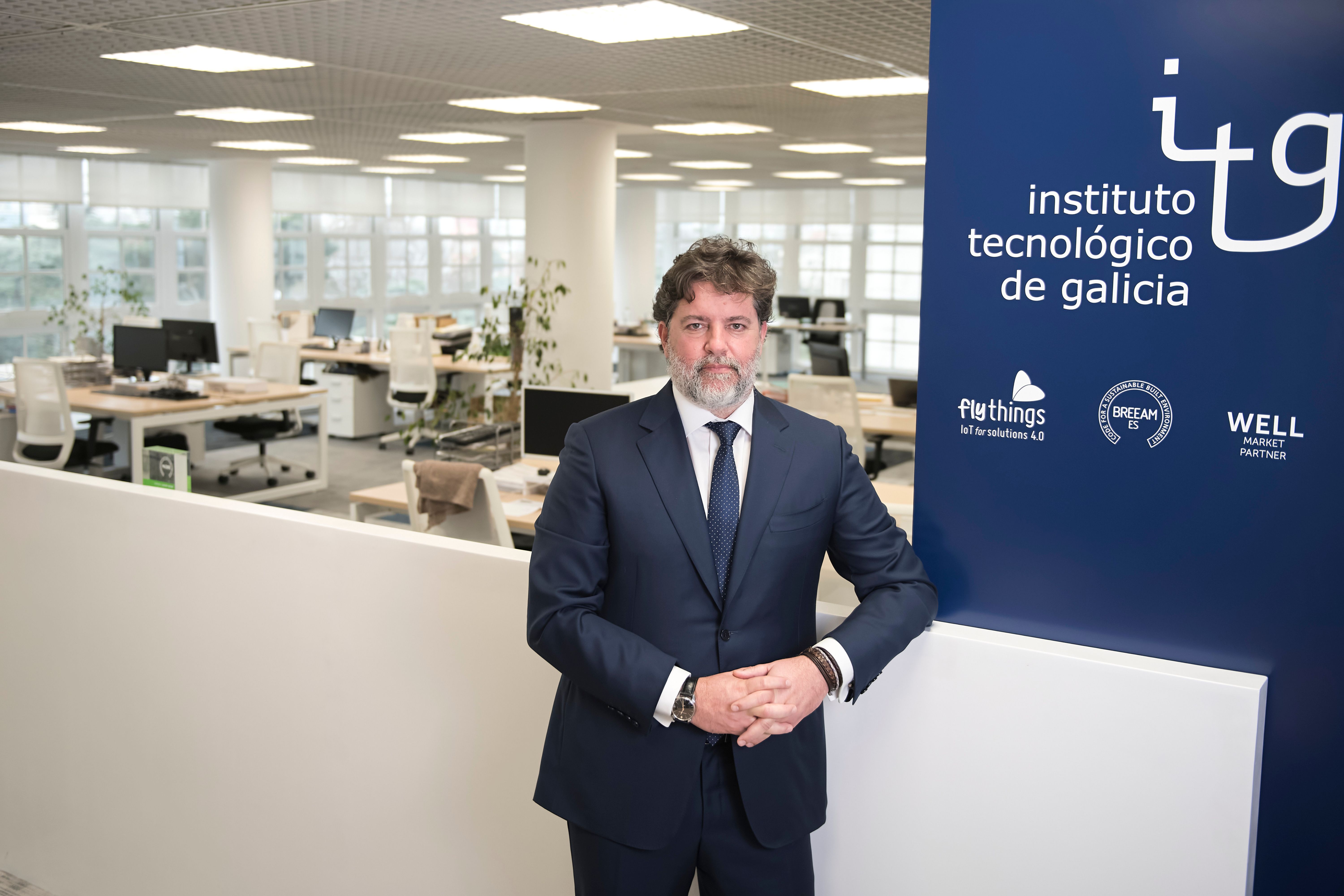
Latest information

Interview with Carlos Calvo Orosa, general manager of the Galician Institute of Technology (ITG)
ITG aims to improve the competitive capacity of companies, organisations and professionals through R&D and differential technology. They are also a member of the governing council of the Federation of Technology Centres of Spain (FEDIT), of which Carlos Calvo has been its president since 2015.
How does ITG contribute to the improvement of Galician competitiveness?
ITG is a technology centre that transforms knowledge into social and market value. We do this by developing differential technologies and facilitating access to research and technological development activities that respond to the needs and challenges of businesses. We do this with more than 30 years of experience under our belts and the ability to develop technology and innovation for companies that would find it extremely difficult, if not impossible, to develop on their own.
Although it is true that we also work with large companies, SMEs are our natural clients. Along these lines, we have set up an SME Accelerator Office to provide comprehensive and free advice to small and medium-sized companies on the digitisation of their business processes: purchasing, sales, finance, production and logistics, for example.
What innovation and improvement processes are promoted by the Institute?
We are currently working on technologies related to artificial intelligence, autonomous mobility, advanced sensor technology, energy intelligence, artificial vision, natural language processing, to name a few. And we are applying all this to multiple sectors including aeronautics, renewable energies, industry, construction, the agro-marine system, natural resource management, such as water and forestry, and public services.
What are the challenges ITG is working on?
In the field of autonomous air mobility, in which we are a benchmark, we are driving the large European demonstrator of Urban Air Mobility H2020 AMU-LED. It is an international project involving 17 companies and institutions from Europe and the United States that combines multiple air traffic exercises with unmanned vehicles, including the first unmanned air taxi demonstrations in Spain, which we have brought to Galicia.
In the field of energy transition, we work on the development of intelligence that enables the management of local energy communities that can be equipped with hybrid systems of renewable energy generation and storage, based on self-production and shared self-consumption. In addition, we work to overcome the barriers so that technologies associated with artificial intelligence, such as virtual and augmented reality, artificial vision or natural language processing, can be effectively incorporated by companies into their business processes.
We also have a long track record in the digitisation of the integral water cycle and Industry 4.0, and we are a key player in urban development with the BREEAM® international seal for sustainable buildings. In short, we carry out innovative activities that employ 130 professionals and are completely oriented towards the triple benefit of environmental, economic and human well-being.
What have you achieved over the years?
A milestone that perfectly summarises our trajectory in recent years, and of which we are very proud because of the difficulty involved, is the triple recognition of the Ministry of Science and Innovation as a Cervera Technological Centre of Research Excellence in the fields of artificial intelligence, Energy Transition and Intelligent Transport.
How does it benefit Galicia to be part of the governing council of the Federation of Technology Centres of Spain (FEDIT)?
Being part of an organisation that leads the national representation of 43 technology centres, employs 8,700 researchers and technologists, and provides services to 27,000 client companies provides us with knowledge and a strategic vision that is key to promoting innovation, technological development and research at the highest level in our sector. ITG has been a member of the FEDIT governing council since 2012 without interruption, and for the last 8 years I have had the responsibility of participating as president of all the technology centres in Spain.
What are the fruits of the collaboration with the Galician Regional Government through the Galician Innovation Agency?
The collaboration with the Galician Innovation Agency takes place in several areas, but perhaps I would highlight the Joint Innovation Units programme that has allowed us to face technological demands of the international market together with companies such as SDLE or NTT Data. We are the only technology centre in Galicia with specific mixed units in the drone field. Specifically, in technologies for the automation of drone operations and unmanned air traffic management.
In addition, we have the support of the Agency, and also of the UDC, in the development of the advanced laboratory of artificial intelligence applied to drones that will be located in the Cidade das TIC (ICT City) of A Coruña. This infrastructure will bolster Galicia's position as a stage for testing and technological demonstrations with unmanned aerial systems in urban environments.
What are your expectations regarding the Aerospace Pole and the ICT City?
Both initiatives are aimed at helping our production network compete with other territories on an international scale in two sectors that generate qualified and quality employment. The Aerospace Pole has contributed to the existence of a consolidated and recognised aeronautical and aerospace sector in Galicia.
As for the ICT City, work on Galaxy-Lab, our advanced artificial intelligence laboratory for drones, is progressing well and will allow us to consolidate Galicia at the forefront of Europe in R&D and testing of unmanned aerial systems. It is a complementary infrastructure with others already existing in Galicia and will provide an adequate response to the needs of international drone operators with whom we are already working.